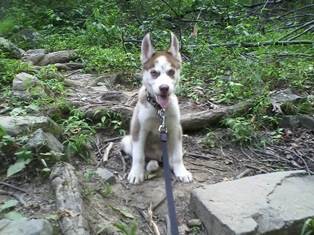With spring comes lawn care and garden maintenance. However, did you know that certain mulch brands can be dangerous for your pets?
Some of you may have read the warnings that have been circulated through the internet recently and in the past about the dangers of Cocoa Bean Mulch and your pets. A version we noticed recently was about a dog named Calypso who ate the mulch and died the next day. This particular story has been in circulation for many years now, and the AVMA published an article to clarify the concern to pet owners about this particular story (read full article here).
Since there are chemicals contained in the mulch that do pose a health risk to your pet, it is worth discussing in more depth.
Cocoa Bean Mulch can be purchased in certain garden centers and online around the country. Landscapers and homeowners like it because it is aromatic, it repels garden pests, and it retains moisture adequately.
What makes the mulch dangerous to pets, especially dogs who would have a greater tendency than cats to chew the material, is the chemical compounds found in the cocoa bean shell it is made from. The shells contain two compounds called methylxanthines that are also found in chocolate: theobromine and caffeine.
The aroma of the mulch is what dogs find appealing. According to research by the ASPCA, the risk to your dog depends on its size, the amount of mulch ingested, and also the level of theobromine in the mulch. However, this can vary widely depending upon the brand. Puppies and small-breed dogs would be at greater risk.

Our recommendation is to avoid the use of Cocoa Bean Mulch completely and look for safer mulch products; read labels carefully. As always, supervise your pets when outdoors and pay attention to what they might chew or put into their mouth. Distract them with safe chew toys and keep them away from flower beds and mulched areas of your lawn.
There are other dangers associated with pets consuming Cocoa Bean Mulch, however. The mulch also may contain pesticide residue and mycotoxin-producing mold, specifically penitrem A and roquefortine. Ingestion of this mold can result in severe neurologic signs, tremors, and seizures.
Symptoms of mulch toxicity will usually appear within 6 to 12 hours and can include:
- Vomiting
- Diarrhea and abdominal pain
- Rapid heart rate
- Muscle tremors
- Seizures
- Possible Death
Our best advice is to prevent your dog from ingesting mulch of any kind. Always keep the Pet Poison Helpline number handy – 800-213-6680 – and visit their website in advance so you know the procedure in case of emergency. Emergency instructions can be found here.
Also, visit the Belle Mead Animal Hospital website Emergency page to find an emergency care facility in our area if the need does arise.
Joe Martins, DVM, Belle Mead Animal Hospital

Joe Martins, DVM, Belle Mead Animal Hospital


